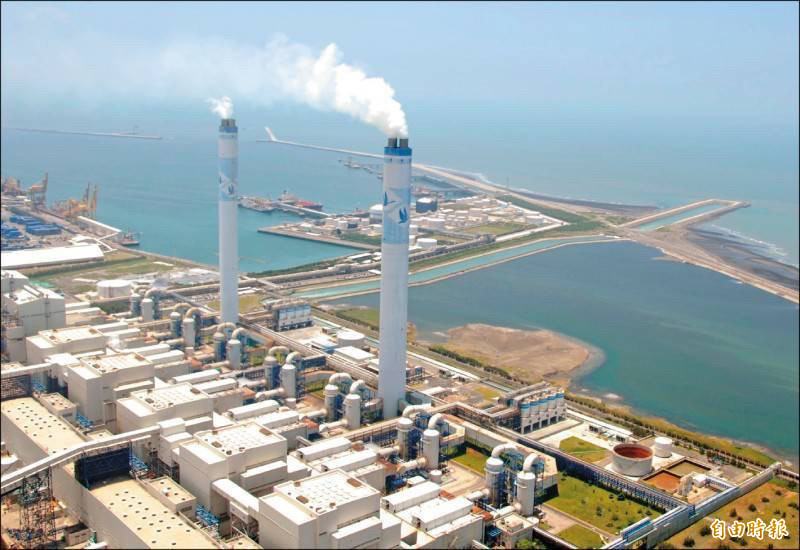In response to the passing of the third reading of the Climate Change Response Act, the Association for the Advancement of Industry and Commerce calls on the government to provide incentives for the financial industry to use it to control the role of financing and guide the transformation of various industries to net zero.
(schematic diagram, data photo)
[Reporter Liao Jianing/Taipei Report] In response to the passage of the "Climate Change Response Law" by the Legislative Yuan for the third reading, the Chamber of Commerce and Industry today (11th) suggested that the government should provide incentives and incentives for the financial industry, so that the financial industry can make good use of its role of guiding funds. Accelerate and assist various industries to carry out low-carbon transformation, and strengthen international competitiveness in carbon reduction.
The Association for the Advancement of Industry and Commerce stated that carbon reduction is imperative, and there are many difficulties to be overcome in the process, so it put forward suggestions and appeals to the government in order to reduce the impact on the business community.
Please read on...
The Association for the Advancement of Industry and Commerce suggests that the first step is to speed up the formulation of sub-laws of the climate law, including carbon fee collection methods, carbon inventory mechanisms, etc., and specify reasonable supporting measures to reduce future disputes in law enforcement.
Regarding the collection of carbon fees, the Association for the Advancement of Industry and Commerce stated that the collection of carbon fees must consider the overall competitiveness of enterprises, and the income from carbon fees should be used first to assist in the improvement of carbon reduction technologies and improve the power emission coefficient, so as to reduce the cost burden of enterprises and maintain export competition force.
The Association for the Advancement of Industry and Commerce also stated that starting from next year, the carbon fee will be levied on 287 large carbon emitters, and the detailed specifications must be more clearly defined, including defining the scope of direct emissions and indirect emissions, electricity consumption, and self-reduction calculations The preferential tariff rates drawn, and the inspection targets of different industries, etc.; in addition, for manufacturers whose emission reductions have reached the targets specified by the competent authority, repeated carbon fees should be avoided.
Regarding the carbon trading system, the Association for the Advancement of Industry and Commerce stated that carbon trading is more flexible than carbon fees. It is recommended that the government establish a carbon emission trading system as soon as possible. Let enterprises have more autonomy and reduce their carbon trading costs, so as to stimulate the development of domestic low-carbon technology and the formation of circular economy.
Regarding the carbon inventory mechanism, the Association for the Advancement of Industry and Commerce stated that the verification capacity should be expanded, and it is recommended that the government plan a hierarchical guidance mechanism based on industry categories and scales to truly satisfy small and medium-sized enterprises of various industries and scales in terms of resources such as information, manpower, and capital. need.
Regarding the current energy policy of "non-nuclear homeland", the Association for the Advancement of Industry and Commerce pointed out that the vast majority of manufacturers believe that "starting from the energy structure, strengthening the development of clean energy and establishing energy storage facilities" is the best strategy for the government to promote carbon neutrality, including accelerating The development of new energy sources, as well as any energy options, should be considered.
The Association for the Advancement of Industry and Commerce also suggested that reducing carbon emissions in the energy sector is the fundamental way to adjust the energy structure. The government should also conduct a rolling review of the electricity ratio and carbon emission coefficient targets for each stage of 2030, 2040, and 2050.
In response to excessive taxation, the Association for the Advancement of Industry and Commerce suggested that the government should allocate a fixed percentage of excess taxation in the future to assist enterprises in developing low-carbon, negative-carbon, and resource recycling technologies, as well as subsidize and reward industries for carbon emissions. invest.
The Association for the Advancement of Industry and Commerce further pointed out that the introduction of carbon fees may push up the production cost of products, thereby triggering the effect of green inflation. It suggested that the government formulate specific strategies and plans to provide necessary assistance to affected industries, laborers, and consumers. .
Finally, the Association for the Advancement of Industry and Commerce suggests that the government and financial authorities should plan to provide incentives and incentives for the financial industry, make good use of the financial industry's key role in mastering investment and financing tools and shouldering capital guidance, and accelerate the low-carbon transformation of various industries.
Grasp the pulse of the economy with one hand I subscribe to Free Finance Youtube channel
Already added friends, thank you
Welcome to 【Free Finance】
feel good
Already liked it, thank you.
related news
